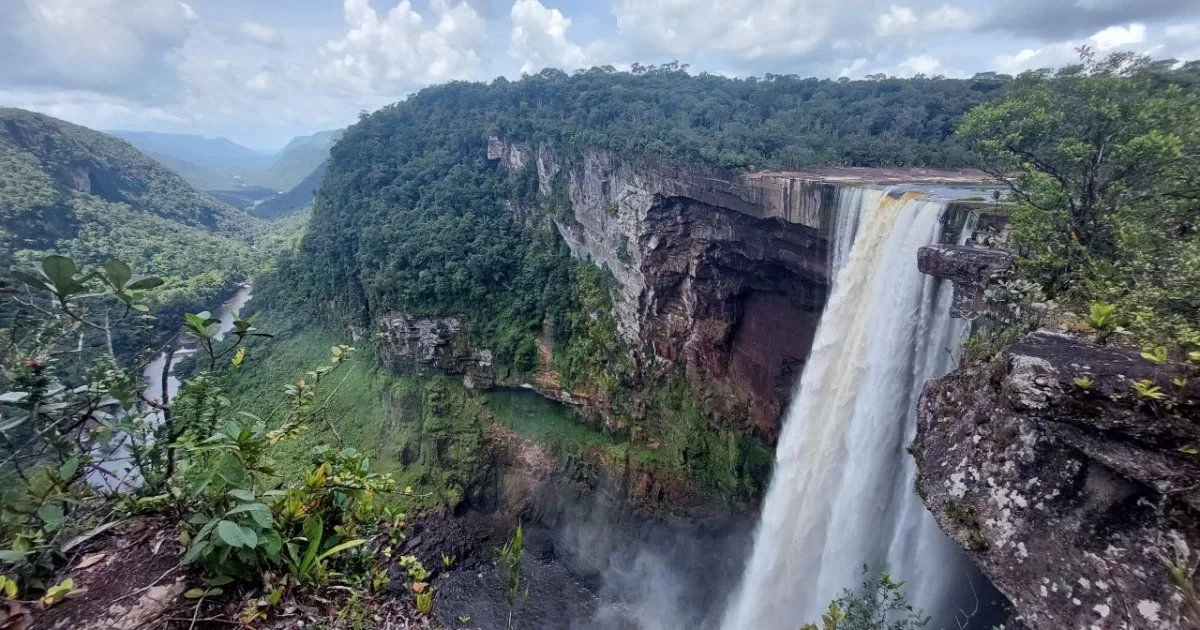GEORGETOWN — In six days, the regimen Venezuela has sought to revive the territorial dispute with Guyana about him Essequibo with an action in international jurisdiction and a ley that they respond to “subaltern” and “inappropriate objectives” and that do not contribute to the just claim or regional peace, warn international organizations.
Given the actions of the Venezuelan Executive regarding the controversy that reached its peak at the end of 2023, the Georgetown government also urged Venezuela to comply with judicial procedures and abide by the rulings issued by the International Court of Justice (CIJ) where the dispute that was also aired in the UN Security Council is resolved.
The 15 members of the Security Council were scheduled to issue a statement, AFP reported.
This April 8, the Venezuelan Council of International Relations (Covri) urged the regime “not to continue exploiting the claim for subordinate objectives and to promote national unity,” and to draw up a strategy “aimed at effectively advancing our interests regarding the claim of Guayana Esequiba.”
“Vacuum rhetoric, imposture and the spectacle of occasion to conceal the errors committed in recent years cannot continue to be the inappropriate substitute for the intelligent strategy that our just claim requires,” indicates the statement from the organization made up of expert internationalists. in the subject.
Essequibo claim at risk
On April 8, a representation of Venezuela presented documents on the dispute before the ICJ to “defend the possession of Essequibo”, a territory administered by Guyana. But the delivery of the documentation “does not imply the consent of Venezuela or the recognition of the Court in the territorial controversy over Guayana Esequiba, nor the decision that it may adopt on this matter,” according to a statement from the regime’s Foreign Ministry.
The position was reaffirmed by Maduro when he called on the Guyanese president, Irfaan Ali, to resume negotiations. “Sooner rather than later, Guyana will have to sit down and negotiate with Venezuela.”
Given this, the Council warned that Venezuela’s non-recognition of the jurisdiction of the ICJ, from which it is inferred that it will not appear again, based on the Law for the Defense of Guayana Esequiba, and, at the same time, having handed over the document that they called “Contra Memoria” within the period set by the ICJ to do so, constitute a risk for the claim.
“We warn that the ICJ will not only maintain its criterion that the question of its jurisdiction is “res judicata”, which was also recognized by the lawyers sent on behalf of Venezuela to the ICJ during the oral admissibility hearings held in November 2022. ; but now the delivery of the document within the established period will be valued by the ICJ as a new act of the Executive Branch that allows it to deduce a tacit consent of Venezuela to its previously established jurisdiction, under the principle of extended forum”.
The Council also expresses its concern with other aspects of the Foreign Ministry’s statement, “from the attempt to delegitimize the ICJ to the a priori statement that the decision it issues will not be respected, which will surely have a negative impact on the judges in The Hague and will continue to indispose them against our just cause.”
Venezuelan law, unacceptable
Covri’s objections are joined by the official declaration of the Caribbean Community, Caricom, in which the countries point out that the Organic Law for the Defense of Guyana Esequiba, which Maduro sanctioned in March, threatens regional peace and stability.
“It has caused an unacceptable escalation of tensions between that country and the Cooperative Republic of Guyana and has threatened to undermine peace and security in Latin America and the Caribbean,” says the official Caricom statement, which Venezuelan Foreign Minister Yván Gil described as “ “interference” and containing “inaccurate and false” opinions about the law, amid complaints about an alleged “campaign of aggression.”
The law that annexes a new state, number 24, to Venezuelan territory, was also the center of Georgetown’s rejection.
“This attempt by Venezuela to annex more than two-thirds of Guyana’s sovereign territory and make it part of Venezuela is a flagrant violation of the fundamental principles of international law,” said the Guyanese Foreign Ministry in a statement, in which they warn that ” They will not tolerate the annexation, seizure or occupation of any part” of their sovereign territory.
Source: With information from Covri, AFP, El Debate, Diario Las Américas

